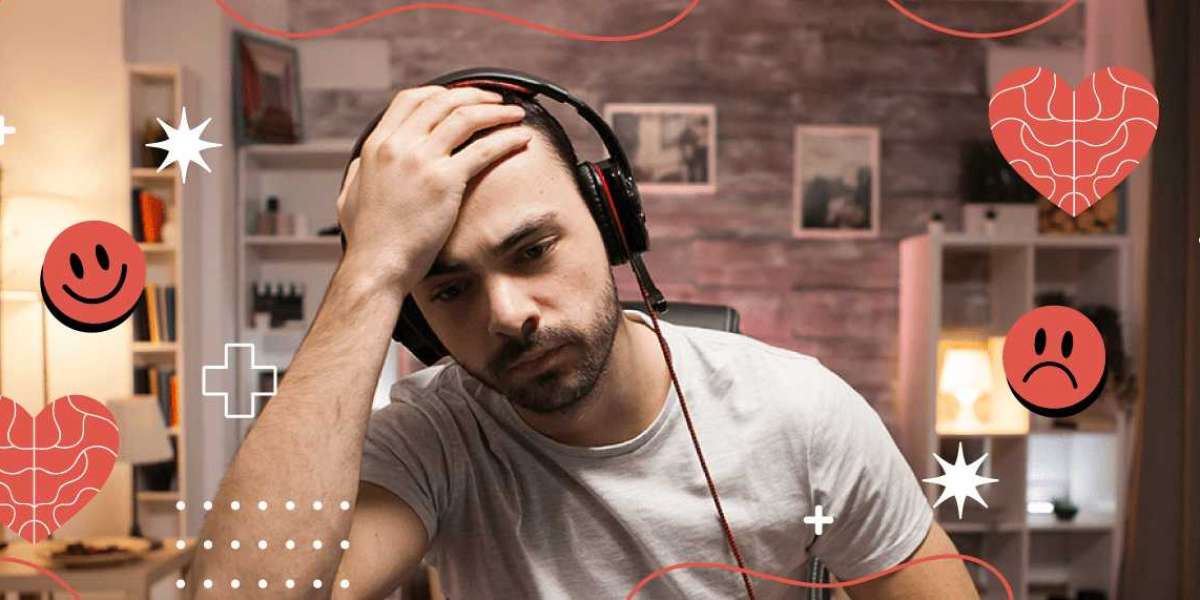Video games can act as distractions from pain and psychological trauma. Video games can also help people who are dealing with mental disorders like anxiety, depression, attention deficit hyperactivity disorder (ADHD), and post-traumatic stress disorder (PTSD). Social interaction.
Video games have been a popular form of entertainment for many years, with an estimated 2.7 billion gamers worldwide. While video games are often associated with negative effects, such as addiction and violent behavior, there is growing evidence to suggest that they may also have positive effects on mental health.
One of the most significant ways that video games can impact mental health is by providing a form of escapism. For people with anxiety, depression, or other mental health issues, video games can offer a way to temporarily escape from the challenges of daily life. This can be especially important for individuals who have difficulty leaving their homes or socializing with others. Video games can also help to reduce stress and provide a sense of control, as players are able to take on challenges and achieve goals in a virtual environment.
In addition to providing a form of escapism, video games can also help to improve cognitive function. Many games require players to use problem-solving skills, memory, and hand-eye coordination. This can help to improve brain function and may even help to delay the onset of cognitive decline in older adults.
Video games can also have social benefits, particularly for people who struggle with socializing in person. Multiplayer games can provide opportunities for players to connect with others who share similar interests, and many online communities have formed around specific games. These communities can provide a sense of belonging and support, which can be especially important for individuals who feel isolated.
While video games can have many positive effects on mental health, it is important to recognize that there are also potential negative effects. One of the most significant risks is addiction. Like other forms of technology, video games can be highly engaging and can lead to compulsive behavior. This can lead to problems with sleep, hygiene, and relationships. It is important to recognize the signs of addiction and seek help if necessary.
Another potential risk is exposure to violent or disturbing content. While many video games are appropriate for all ages, some games contain graphic violence, sexual content, or other adult themes. It is important to be aware of the content of the games that you or your children are playing and to monitor their usage.
Overall, the impact of video games on mental health is complex and depends on many factors, including the type of game, the player's age and personality, and the amount of time spent playing. However, there is growing evidence to suggest that video games can have positive effects on mental health, particularly in terms of providing a form of escapism, improving cognitive function, and promoting social connections.
To maximize the potential benefits of video games, it is important to be mindful of the games that you or your children are playing and to set limits on screen time. It is also important to balance video game usage with other forms of social interaction and physical activity. By taking a balanced approach to video games, it is possible to reap the many potential benefits of this popular form of entertainment while minimizing the risks.
In conclusion, video games can have a significant impact on mental health, both positive and negative. While addiction and exposure to violent content are potential risks, video games can also provide a valuable form of escapism, improve cognitive function, and promote social connections. By being mindful of the content of games and setting limits on usage, it is possible to reap the many benefits of this popular form of entertainment while minimizing the risks.
 High-Performance Computing (HPC) Market is expected to grow to USD 54.9 billion by 2027
High-Performance Computing (HPC) Market is expected to grow to USD 54.9 billion by 2027
 Đối tượng được cấp thẻ tạm trú Việt nam
Đối tượng được cấp thẻ tạm trú Việt nam
 Things You Need to Consider While Investing in Go X Scooters to Earn Passive Income!
By Bopegic Bens
Things You Need to Consider While Investing in Go X Scooters to Earn Passive Income!
By Bopegic Bens #Our leader: Biden will not sanction MBS over Khashoggi's killing despite US report implicating the Saudi leader
By Nic Roossy
#Our leader: Biden will not sanction MBS over Khashoggi's killing despite US report implicating the Saudi leader
By Nic Roossy Causes of stress in the modern generation
By Shweta Saroj
Causes of stress in the modern generation
By Shweta Saroj


